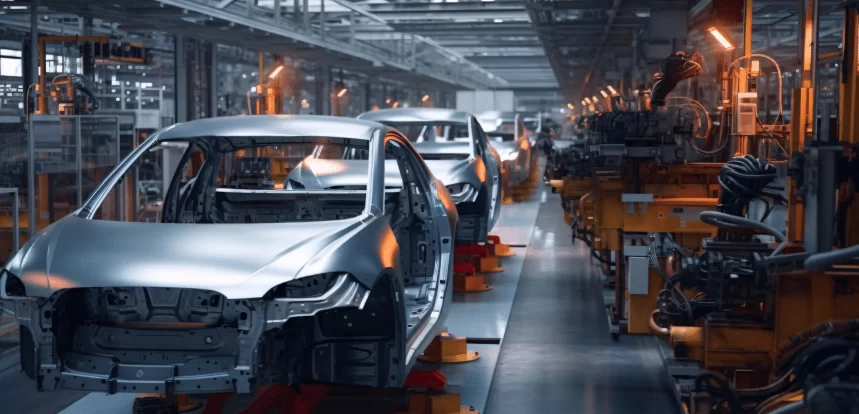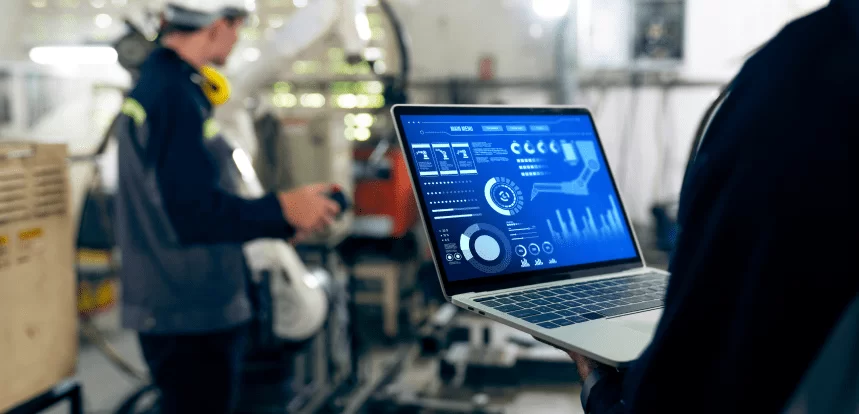Tap into our automotive software solutions - Request your free consultation!

ValueCoders, a leading player in the automotive technology industry, specializes in crafting innovative and user-centric software solutions tailored to the unique needs of businesses within the automotive sector.
Our dedicated team of developers is well-versed in cutting-edge technologies like IoT, AR/VR, ML/AI, and Blockchain, ensuring the delivery of customized, results-driven solutions to a diverse clientele, including enterprises, startups, entrepreneurs, and major automotive companies worldwide.
From startups to big enterprises, development
From startups to big enterprises, development
From startups to big enterprises, development
From startups to big enterprises, development
From startups to big enterprises, development
From startups to big enterprises, development
From startups to big enterprises, development
Drop us a line and we'll get back to you immediately to schedule a call and discuss your needs personally.


Automotive Software Development plays a pivotal role in the automotive industry, bringing numerous advantages that cater to various sectors within the domain. Here are some industry-wise benefits:
Manufacturing and Production:
Vehicle Performance and Safety:
Autonomous Driving:
Different types of automotive software development cater to various aspects of the automotive industry, driving innovation, connectivity, safety, and overall user experience in modern vehicles. These include:
Embedded Software Development
This type of software development involves creating software that runs directly on the electronic control units (ECUs) embedded within vehicles. It includes firmware development for various automotive systems such as engine control, transmission control, brake control, and infotainment systems.
Connected Car Software Development
Connected car software development focuses on developing software solutions that enable vehicles to connect to the internet and interact with other devices, networks, and services. It involves building applications and platforms for features like remote diagnostics, vehicle tracking, over-the-air updates, and integration with mobile devices.
Infotainment Software Development
Infotainment software development is dedicated to creating software solutions for in-vehicle entertainment systems. It includes developing multimedia interfaces, navigation systems, audio/video playback, voice recognition, and connectivity with external devices such as smartphones and media players.
Autonomous Vehicle Software Development
This type of software development revolves around creating software for autonomous or self-driving vehicles. It involves developing complex algorithms, machine learning models, and sensor integration to enable vehicles to perceive their surroundings, make decisions, and navigate without human intervention.
Telematics Software Development
Telematics software development focuses on building software solutions that collect and analyze data related to vehicle performance, driver behavior, and environmental conditions. It includes developing applications for fleet management, usage-based insurance, remote diagnostics, and predictive maintenance.
Automotive App Development
Automotive app development involves creating mobile applications that enhance the driving experience, provide vehicle information, and offer additional services. It includes developing apps for vehicle control, remote access, service booking, parking assistance, and car-sharing platforms.

As the automotive industry evolves, electric and autonomous vehicles are at the forefront of this transformation. Software is pivotal in driving this change, ensuring these vehicles are efficient, safe, and user-friendly.
Powering the Electric Revolution
Battery Management Systems (BMS): Software-driven solutions to monitor and manage battery health, state of charge, and temperature.
Energy Consumption Optimization: Algorithms that ensure efficient energy use, extending vehicle range and battery lifespan.
Navigating the Road Autonomously
Sensor Integration: Software processes data from cameras, LiDAR, radar, and other sensors to perceive the environment.
Decision-making Algorithms: Determines actions like lane changes, overtaking, or emergency stops based on real-time data.
Vehicle-to-Everything (V2X) Communication: Software protocols that allow vehicles to communicate with other vehicles, infrastructure, and more.
User Experience and Infotainment
Interactive Dashboards: Software-driven displays showing vehicle stats, navigation, entertainment, and more.
Voice Assistants: Software that allows drivers to control vehicle functions using voice commands.
Some of the latest trends and advancements in automotive software development include:
Connected and Autonomous Vehicles: The automotive industry is witnessing a significant shift towards connected and autonomous vehicles. Advancements in software development are driving innovations in self-driving technology, connectivity, and vehicle-to-vehicle communication.
Electrification and Alternative Fuels: Software plays a crucial role in optimizing the performance and efficiency of electric and hybrid vehicles. Development in battery management systems, energy optimization algorithms, and charging infrastructure management is shaping the future of automotive software.
Artificial Intelligence and Machine Learning: AI and ML technologies are being leveraged to enhance various aspects of automotive software. These include intelligent driver assistance systems, predictive maintenance, natural language processing for voice commands, and computer vision for object recognition.
Cybersecurity and Data Privacy: With the increasing connectivity of vehicles, ensuring robust cybersecurity and data privacy is paramount. Automotive software development focuses on implementing secure communication protocols, encryption, intrusion detection systems, and regular security updates.
Safety remains paramount in the automotive world. With the integration of advanced software solutions, vehicles today are equipped with features that prevent accidents and offer a safer driving experience.
Advanced Driver Assistance Systems (ADAS)
Lane Departure Warning: Alerts the driver if the vehicle drifts out of its lane.
Automatic Emergency Braking: Detects an impending collision and applies brakes if the driver doesn’t act in time.
Adaptive Cruise Control: Adjusts vehicle speed to maintain a safe distance from vehicles ahead.
Monitoring and Alerts
Tire Pressure Monitoring Systems (TPMS): Alerts the driver of under-inflated tires.
Driver Fatigue Detection: Uses facial recognition to detect signs of driver fatigue and alert them.
Over-the-Air (OTA) Updates
Safety Patches: Allows manufacturers to send real-time software updates to address potential safety issues.
Feature Enhancements: Introduces new safety features or improvements to existing ones.
The future of vehicle maintenance is predictive rather than reactive. Leveraging software, the automotive industry is shifting towards a model where potential issues are identified and addressed before they escalate, ensuring longevity and optimal performance.
Real-time Monitoring
Vehicle Health Monitoring: Continuously checks the status of critical vehicle components.
Alerts and Notifications: Notifies drivers of potential issues before they become critical.
Data Analytics and Insights
Trend Analysis: Identifies patterns in-vehicle data to predict potential failures.
Maintenance Scheduling: Software algorithms suggest optimal times for maintenance based on usage patterns.
Integration with Service Networks
Service Booking: Allows drivers to book service appointments based on predictive maintenance alerts.
Parts Availability Check: Checks the availability of required parts in real time.
The global push towards sustainability has made eco-friendly transportation a priority. Software is at the heart of this movement, optimizing energy use, reducing emissions, and integrating renewable energy sources to pave the way for a greener future.
Efficient Energy Management
Optimal Energy Consumption: Software algorithms ensure the vehicle uses energy efficiently.
Regenerative Braking Systems: Recovers energy during braking and converts it to usable power.
Emission Monitoring and Reduction
Emission Control Systems: Monitors and controls vehicle emissions to meet regulatory standards.
Eco-driving Feedback: Provides drivers with feedback on driving habits that can reduce emissions.
Integration with Renewable Energy Sources
Solar Integration: Software controls that allow vehicles to harness solar energy.
Grid Interaction: Allows electric vehicles to draw power during off-peak times, promoting the use of renewable energy sources.
Learn more about our processes and how we work with the help of the following FAQs.
Ans. At ValueCoders, we have a dedicated team of experienced developers who specialize in automotive software development. We offer cost-effective solutions, timely delivery, and a client-centric approach to ensure your success in the automotive industry.
Ans. Automobile application development costs vary based on project complexity, features, technology, and timeline. For a precise estimate, please contact us for a tailored quote aligning with your project’s unique requirements.
Ans. You can request a free consultation with our team at ValueCoders, where we will analyze your requirements and provide you with an accurate time and cost estimation for developing your automotive software. We ensure transparency and clarity throughout the estimation process.
Ans. Yes, we develop mobile-friendly automotive apps that are compatible with various platforms, including iOS and Android. Our expertise in mobile app development allows us to create seamless and user-friendly experiences for automotive applications.
Ans. We use advanced technologies in providing automotive software development services to clients. These include embedded systems, connected car platforms, telematics solutions, infotainment systems, autonomous driving software, and data analytics. We focus on delivering scalable, secure, and innovative solutions that drive success in the automotive industry.
We are grateful for our clients’ trust in us, and we take great pride in delivering quality solutions that exceed their expectations. Here is what some of them have to say about us:
Trusted by Startups and Fortune 500 companies
We can handle projects of all complexities.
Startups to Fortune 500, we have worked with all.
Top 1% industry talent to ensure your digital success.



Let's discuss how we can bring your vision to life.